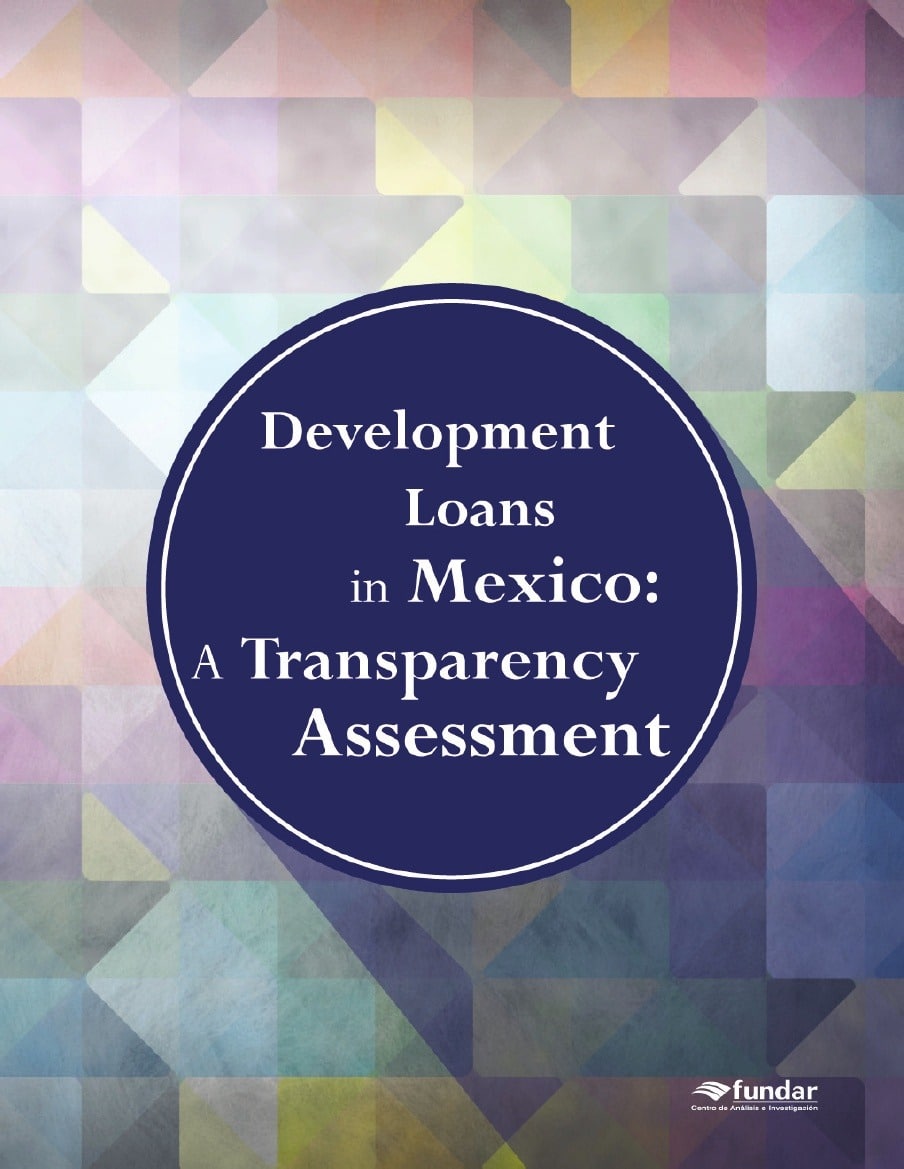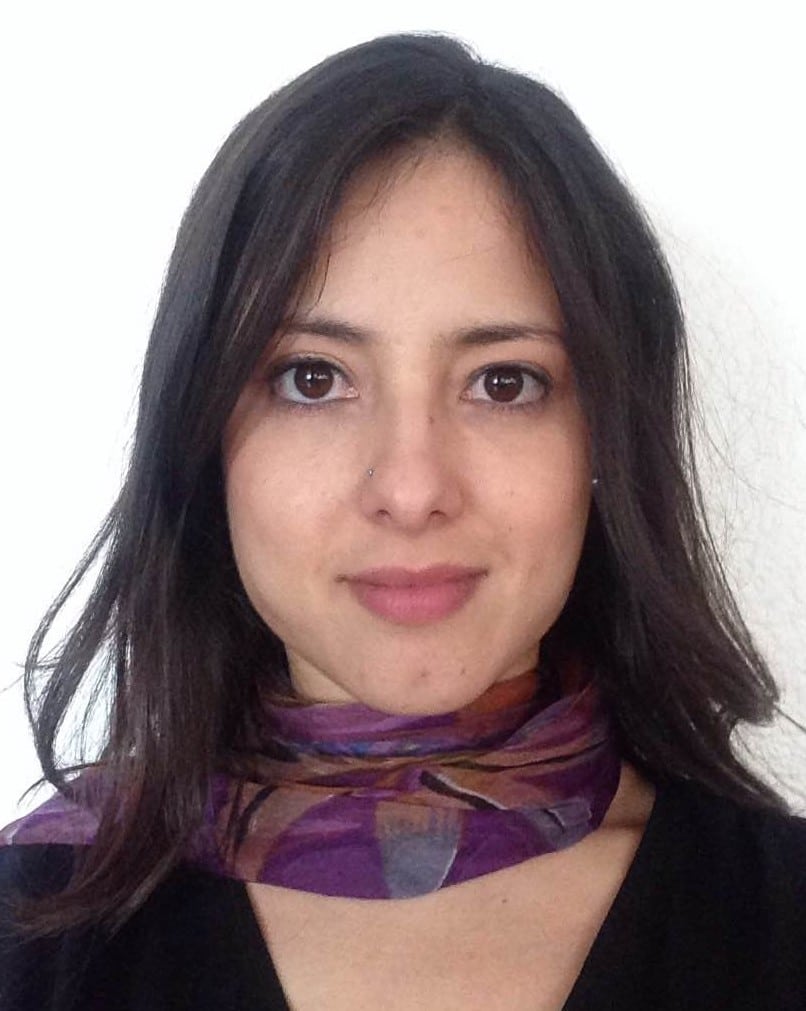Every year countries receive and spend over $100 billion in loans and grants from development banks like the World Bank. These investments may go to any number of activities, from infrastructure projects, to social services delivery, to policy reforms.

Fundar’s Diagnostic Report released this past September
These investments may go to any number of activities, from infrastructure projects, to social services delivery, to policy reforms. his development finance can have a critical impact on the enjoyment of human rights in a host country – positive or negative. So how are these critical decisions around development finance made? Decisions like what loans are taken, what sectors of the economy are prioritized, how a specific development project will be designed or implemented. In much of the world, these decisions are made behind closed doors, with little to no public input or accountability.
This blog is part of a series highlighting the work that members of the Coalition for Human Rights in Development are doing to change the way development decisions are made within their countries and to ensure that the development process is transparent, participative, accountable, and rights-respecting.
We spoke with Mariana González Armijo, Researcher on Transparency and Accountability at Fundar, an organization located in Mexico which works to transform the relations of power between society and government, to encourage a society that is fair, participatory, and respects people’s human rights.
Q: What change would you like to see in how Mexico engages with development finance?
A: Our main goal is to secure strong standards on transparency, to guarantee that human rights are respected within development finance, and to make it more clear what our government is doing in the name of development with all the resources it expends. This is important since in many cases development projects end up increasing inequality and don’t achieve the outcomes they had promised in the first place.
Q: What is your strategy?
First, we are working on a diagnostic which exposes the lack of transparency around the loans that Mexico accepts. Mexico is one of the main clients of the World Bank and the Inter-American Development Bank, with 9.2% and 18.83% of the global portfolios, respectively. Most of the time, once resources from development banks enter Mexico, they’re merged with the federal budget, so there is no way to track them. One step to guarantee that the money doesn’t go to a project that violates human rights is to make the loans transparent.
Additionally, we have worked on a strategy with other CSOs to increase the transparency around financing in the area of climate change. Many IFI loans are going into climate change, but there are no specifics on national budget documents identifying where the money is coming from. If we succeed in getting this transparency around climate projects, we may be able to expand it to other sectors.
At a broader level, we analyze public policies and enhance national-level normative frameworks related to the implementation of development projects. For example, regulations relating to energy reform, public private partnerships, and environmental assessments have a huge impact on development projects implemented in Mexico.
Finally, we conduct research on specific development projects, working with communities to enhance their capacity to defend their territories and rights, providing technical assistance and using strategic litigation at the national level.
Q: Why is this work important?
A: The right to information is necessary to guarantee the realization of other rights. Once a community has information regarding projects that are going to be implemented in their territory, then they can decide if they want to be consulted or participate in projects that are going to affect them. Participation is important because it can guarantee the right to consultation and consent.

Mariana González Armijo, Researcher on Transparency and Accountability at Fundar
Q: Have you had any successes engaging with your parliament or finance ministry or other ministries regarding development finance decisions?
A: This has been one of our major challenges. One strategy we have is talking directly with the Finance Ministry. Another strategy is to advocate for changes within the Federal Income Law. Mexico’s Federal Income law is the instrument which defines the ceiling for external debt, including loans from IFIs. So we have tried to put an article in that law to oblige the government to provide details regarding where money is coming from, what specific projects it will be used on, and who will be responsible for implementing each project.
Q: What are the biggest challenges you face in this work?
A: One challenge is the fact that development finance is such a technical theme, so it can be difficult to communicate and to bring in other partners. We have to make the link between development finance and other agendas, such as health and women, from a human rights perspective. If we can manage to make these critical linkages, it is easier to have a stronger impact.
Q: What are the next steps in your work?
A: In September we released our diagnostic: Development Loans in Mexico: a Transparency Assessment. The report attempts to clarify the legal framework that governs the flow and execution of Mexico’s development loans; the type information that is available on these loans; and which information, when requested, is supplied by the Mexican government. It was shocking to find from this assessment that we have a really strong constitutional level framework around development finance; the government is just not complying with it. The assessment shows the lack of transparency around development loans and will help us to advocate for a specific mechanism at the national level to allow citizens to track the resources coming from IFIs.
Mariana can be reached at mgonzalez@fundar.org.mx
* Responses may not be exact quotes.
